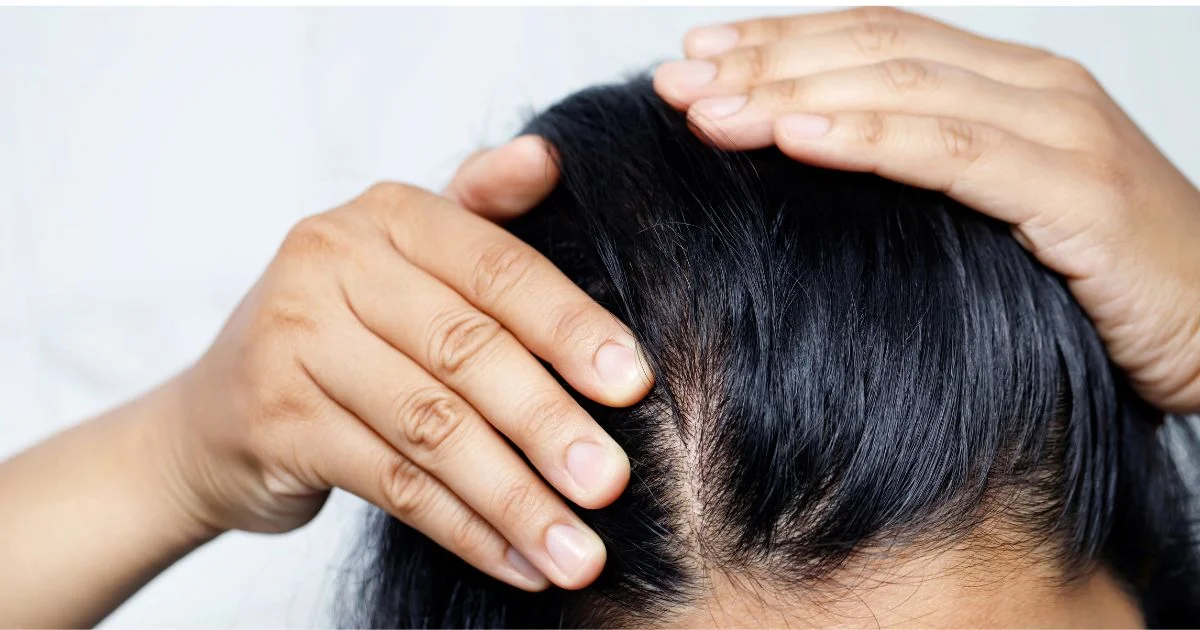Welcome to an in-depth exploration of the intriguing connection between B12 deficiency and itchy scalp. B12 deficiency is a prevalent condition that can lead to various health concerns, and an often-overlooked symptom is an itchy scalp. In this article, we will delve into the fascinating world of B12, a vital vitamin essential for overall well-being, and how its deficiency can manifest as persistent scalp itchiness. We will uncover the potential causes, symptoms, and risk factors associated with B12 deficiency itchy scalp. Join us on this informative journey to gain valuable insights into understanding and addressing this uncomfortable condition.
 B12 Deficiency and Itchy Scalp: Understanding the Connection
B12 Deficiency and Itchy Scalp: Understanding the Connection
An itchy scalp can be bothersome and affect your overall well-being. However, before we jump into the remedies, let’s first understand the relationship between B12 deficiency and an itchy scalp.
You may also like..Itchy Scalp Locs: 10 Causes, Effective Remedies, and Care Tips How to Get Rid of Dandruff: 11 Powerful Remedies to Say Good Riddance to Flakes DIY Keratin Treatment at Home: Unlocking the Secrets to Silky, Smooth Hair
What is B12 Deficiency?
B12, also known as cobalamin, is a vital vitamin that plays a crucial role in various bodily functions. It aids in the formation of red blood cells, supports nerve health, and is essential for DNA synthesis. When your body lacks sufficient B12, it can lead to a condition called B12 deficiency.
How Does B12 Deficiency Affect the Scalp?
The exact mechanism behind B12 deficiency causing an itchy scalp is not entirely clear, but researchers believe that the lack of B12 can negatively impact the nervous system and lead to sensory disturbances, including itchiness in the scalp.
Identifying B12 Deficiency Itchy Scalp: Symptoms
Recognizing the signs of B12 deficiency itchy scalp is crucial for timely intervention. Here are some common symptoms to look out for:
- Persistent scalp itchiness
- Dry and flaky scalp
- Hair thinning or hair loss
- Redness and inflammation on the scalp
Causes of B12 Deficiency
Understanding the root causes of B12 deficiency can help in preventing and managing the condition effectively. Some potential causes include:
- Poor dietary intake of B12-rich foods
- Malabsorption issues in the digestive system
- Certain medical conditions affecting B12 absorption
- Vegan or vegetarian diets lacking in B12 sources
Risk Factors for B12 Deficiency
Certain factors can increase the risk of developing B12 deficiency, and consequently, an itchy scalp:
- Age: Older adults are more susceptible to B12 deficiency due to reduced stomach acid production.
- Dietary Choices: Vegans and vegetarians might have a higher risk due to limited B12 sources in plant-based diets.
- Gastrointestinal Disorders: Conditions affecting the digestive system can interfere with B12 absorption.
- Medications: Long-term use of certain medications can disrupt B12 levels.
Prevention and Treatment of B12 Deficiency Itchy Scalp
Taking proactive measures to prevent B12 deficiency is essential for overall health. Additionally, addressing the itchy scalp associated with B12 deficiency is equally important. Here are some strategies to consider:
1. B12-Rich Diet
Ensure that your diet includes foods rich in vitamin B12. Sources of B12 include:
- Meat (beef, poultry, fish)
- Dairy products (milk, cheese, yogurt)
- Eggs
- Fortified cereals and plant-based milk alternatives
2. B12 Supplements
In cases where dietary intake is insufficient or malabsorption issues exist, B12 supplements can be beneficial. Consult a healthcare professional to determine the right dosage for your needs.
3. Scalp Care Routine
Adopting a proper scalp care routine can help alleviate itchiness and promote scalp health. Consider using gentle, B12-infused shampoos and conditioners.
4. Address Underlying Conditions
If B12 deficiency is caused by an underlying medical condition, addressing that condition is essential. Work with your healthcare provider to diagnose and manage any related issues.
5. Regular Checkups
Periodic visits to your healthcare provider can help monitor your B12 levels and ensure early detection of any deficiencies.
Home Remedies for Itchy Scalp
1. Apple Cider Vinegar
Apple cider vinegar has antimicrobial properties that can help combat scalp infections and reduce itchiness. Mix equal parts of apple cider vinegar and water, then apply the solution to your scalp using a cotton ball. Leave it on for about 15-20 minutes before rinsing thoroughly with water.
2. Aloe Vera Gel
Aloe vera has soothing and anti-inflammatory properties that can provide relief from an itchy scalp. Extract the gel from an aloe vera leaf and apply it directly to your scalp. Leave it on for 30 minutes before rinsing with water.
3. Coconut Oil
Coconut oil is a fantastic natural moisturizer that can alleviate dryness and itchiness. Warm some coconut oil and massage it into your scalp, ensuring you cover all areas. Leave it on overnight for best results and then wash it off with a mild shampoo in the morning.
4. Tea Tree Oil
Tea tree oil possesses antibacterial and antifungal properties, making it effective against dandruff and itchy scalp caused by fungal infections. Mix a few drops of tea tree oil with a carrier oil like almond or olive oil and massage it onto your scalp. Let it sit for 30 minutes before rinsing.
5. Lemon Juice
The acidic nature of lemon juice helps balance the scalp’s pH and reduce itchiness. Mix the juice of one lemon with some water and apply it to your scalp. Leave it on for 5-10 minutes before rinsing thoroughly.
6. Baking Soda
Baking soda can help exfoliate the scalp and remove dead skin cells, easing itchiness. Make a paste with baking soda and water, then gently massage it onto your scalp. Leave it on for 10-15 minutes before rinsing.
7. Peppermint Oil
Peppermint oil has a cooling effect that can soothe an itchy scalp. Mix a few drops of peppermint oil with a carrier oil and massage it into your scalp. Leave it on for 15-20 minutes before washing it off.
8. Yogurt
Yogurt contains probiotics and has anti-inflammatory properties that can promote scalp health. Apply plain yogurt to your scalp and let it sit for 30 minutes before rinsing.
9. Witch Hazel
Witch hazel has astringent properties that can help reduce itching and inflammation. Dab some witch hazel onto a cotton ball and gently apply it to the itchy areas of your scalp.
10. Olive Oil
Olive oil is an excellent moisturizer that can help relieve dryness and itching. Warm some olive oil and massage it into your scalp. Leave it on for 30 minutes before washing it off.
Remember to perform a patch test before trying any of these remedies, especially if you have sensitive skin or allergies. If your itchy scalp persists or worsens, it’s advisable to consult a healthcare professional for a proper diagnosis and appropriate treatment.
Conclusion
Experiencing an itchy scalp can be frustrating, but it might be a sign of an underlying B12 deficiency. In this article, we’ve explored the connection between B12 deficiency and itchy scalp, as well as discussed various preventive measures and treatment options. Remember to maintain a balanced diet, consider B12 supplements when necessary, and practice good scalp care to alleviate discomfort. If you suspect B12 deficiency or persistent scalp itchiness, it’s essential to consult with a healthcare professional for proper diagnosis and personalized guidance.
Disclaimer:The information provided in this article is for educational and informational purposes only and should not be considered as medical advice or a substitute for professional healthcare consultation. Individual circumstances may vary, and it’s essential to consult a qualified healthcare provider before making any decisions based on the content of this article.
FAQs
Can B12 deficiency cause hair loss?
B12 deficiency can contribute to hair problems, including hair loss, but it is not the sole cause. Other factors like genetics and overall health play a role.
Can I get enough B12 from a vegetarian diet?
It can be challenging to get sufficient B12 from a vegetarian diet alone, as plant-based sources are limited. Consider fortified foods or supplements.
Is scalp itching always related to B12 deficiency?
No, scalp itching can have various causes, including dandruff, dry skin, or allergic reactions. B12 deficiency is one of many possible factors.
Are B12 injections painful?
B12 injections are usually well-tolerated and cause minimal discomfort. Your healthcare professional can administer them with a thin needle.
Can B12 supplements cause side effects?
In general, B12 supplements are safe for most people. However, excessive doses may cause mild side effects like diarrhea or nausea. Follow your doctor's recommendations.




